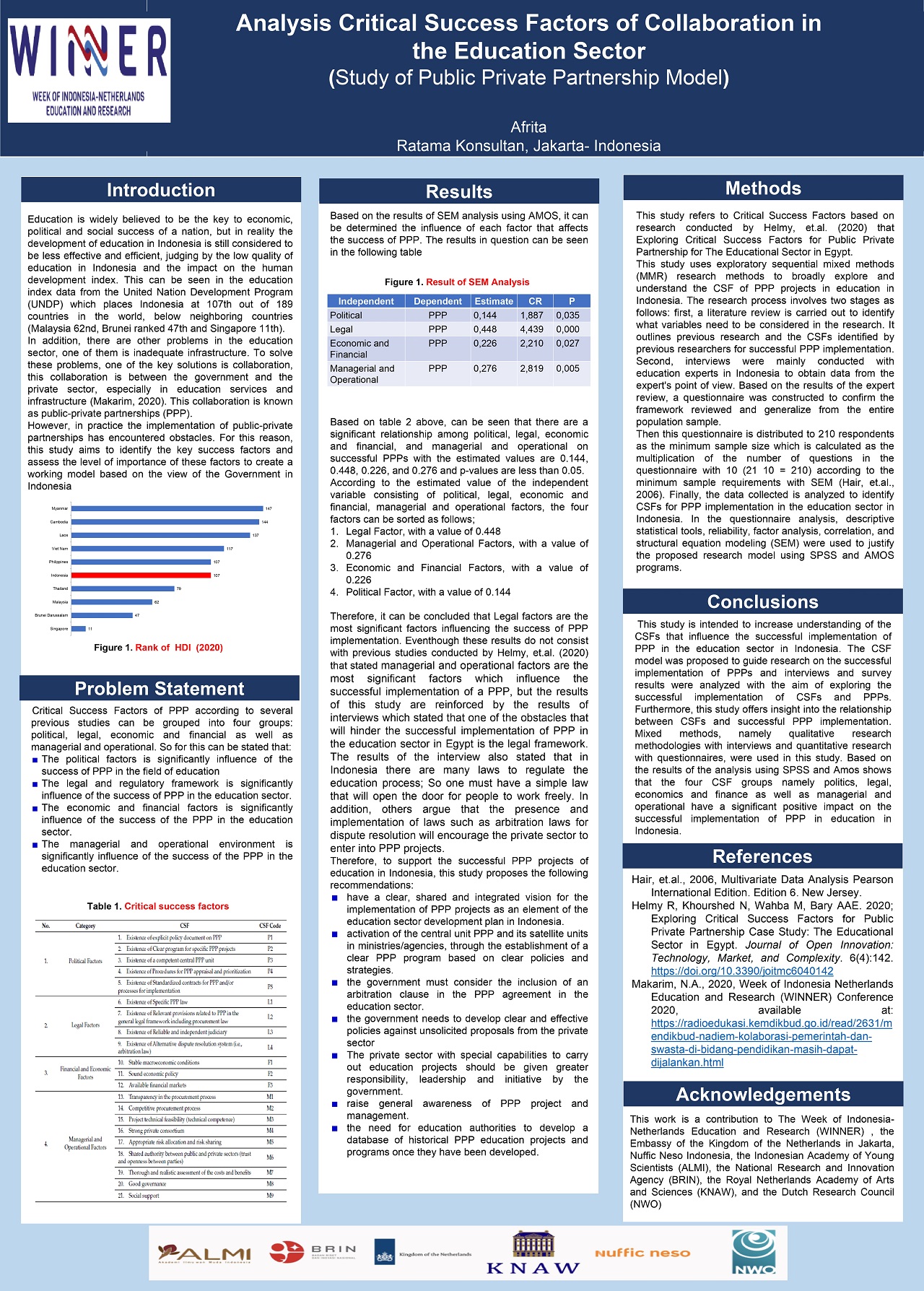Author: Afrita, Ssi, MM, MMC, CQC. Consultant, RatamaKonsultan
Education is widely believed to be the key to economic, political and social success of a nation, but in reality the development of education in Indonesia is still considered to be less effective and efficient, judging by the low quality of education in Indonesia and the impact on the human development index. This can be seen in the education index data from the United Nation Development Program (UNDP) which places Indonesia at 107th out of 189 countries in the world, below neighboring countries (Malaysia 62nd, Brunei ranked 47th and Singapore 11th). In addition, there are other problems in the education sector; one of them is inadequate infrastructure. To solve these problems, one of the key solutions is collaboration; this collaboration is between the government and the private sector,especially in education services and infrastructure (Makarim, 2020). This collaboration is known as public-private partnerships (PPP). However, in practice the implementation of public-private partnerships has encountered obstacles. For this reason, this study aims to identify the key success factors and assess the level of importance of these factors to create a working model based on the view of the Government in Indonesia.This poster presents Critical Success Factors of PPP according to several previous studies one of is Helmy, et.al. (2020) that Exploring Critical Success Factors for Public Private Partnership for The Educational Sector in Egypt. The result of this study shown that Legal factors are the most significant factors influencing the success of PPP implementation. Therefore, to support the successful PPP projects of education in Indonesia, this study proposes the following recommendations:Have a clear, shared and integrated vision for the implementation of PPP projects as an element of the education sector development plan in Indonesia.Activation of the central unit PPP and its satellite units in ministries/agencies, through the establishment of a clear PPP program based on clear policies and strategies.The government must consider the inclusion of an arbitration clause in the PPP agreement in the education sector.The government needs to develop clear and effective policies against unsolicited proposals from the private sector.The private sector with special capabilities to carry out education projects should be given greater responsibility, leadership and initiative by the government.Raise general awareness of PPP project and management.The need for education authorities to develop a database of historical PPP education projects and programs once they have been developed.




